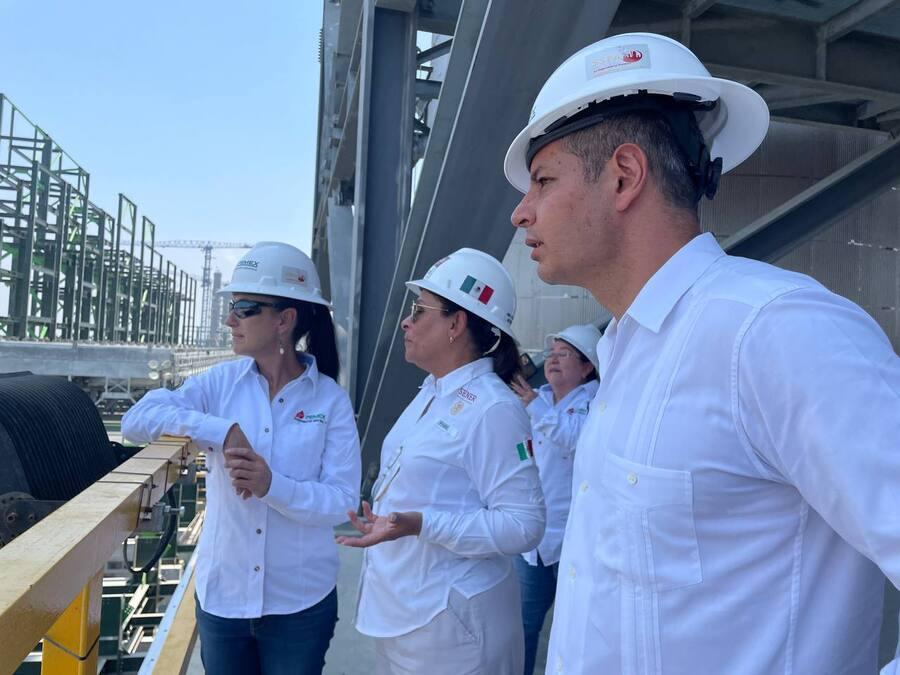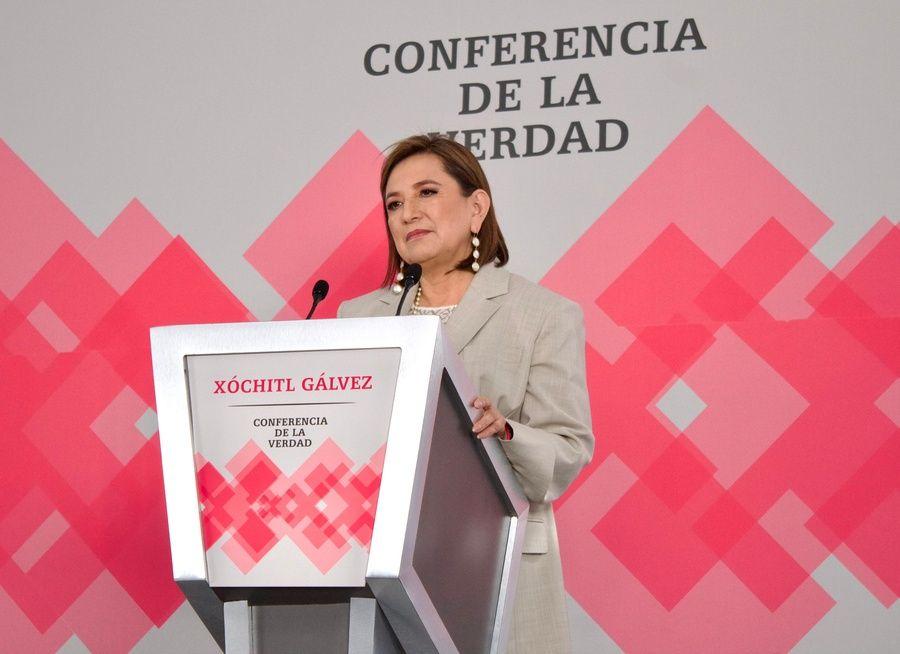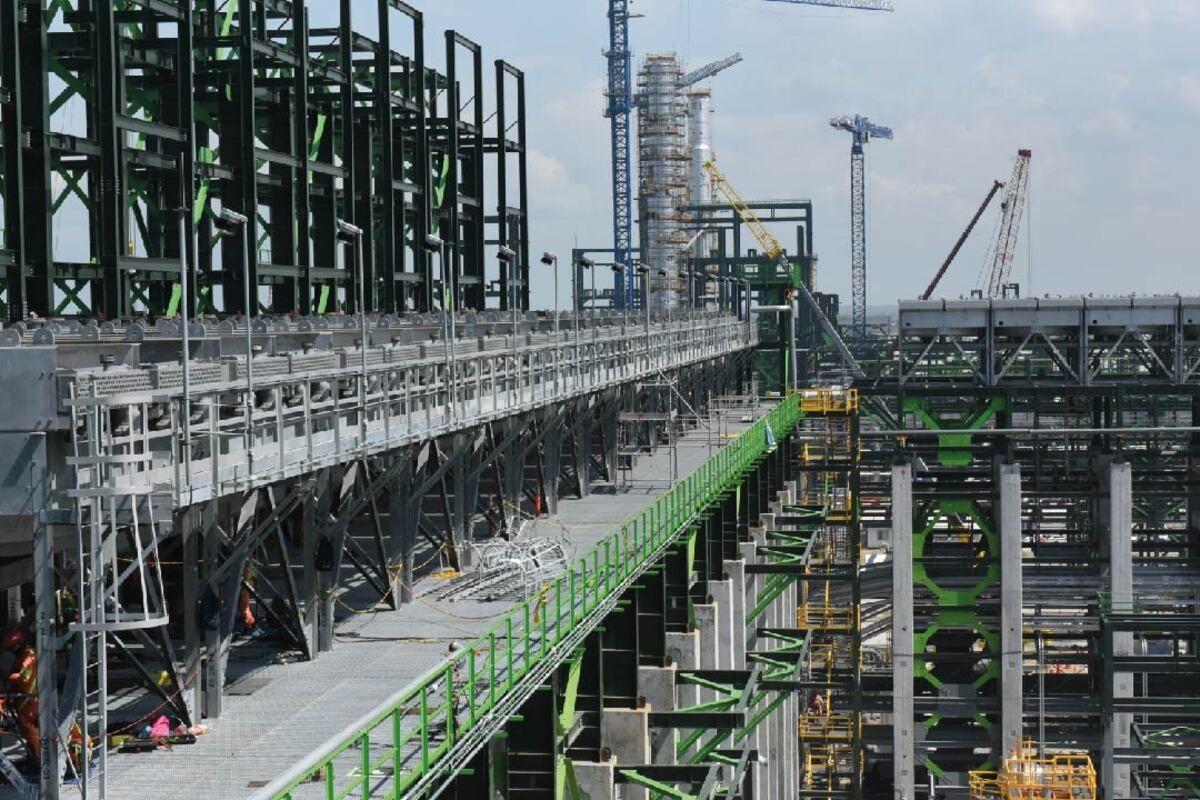The energy transition has become one of the most relevant issues in dealing with the climate crisis. International forums and governments from different parts of the world have signed agreements pledging to reduce the consumption of fossil energies, and thus the emissions of gases into the atmosphere.
The path seems to be renewable energies from the sun, water, air and earth.
Two months before Mexico lives the elections, the proposals of those who are running for president: Claudia Sheiunbaum, Morena's candidate; Xóchitl Gálvez, candidate of the National Action Party (PAN); and Jorge Álvarez Máynez, of the Citizen Movement, are leaning towards renewable energy.
However, energy specialists interviewed for this publication agree that in order to propose a path to the energy transition, we must look beyond replacing fossil fuels.
“In terms of energy transition, Mexico is lagging far behind because 85% of its energy matrix depends on fossil fuels. This has repercussions, especially since it is a country that has already passed peak oil. It will be increasingly difficult to have this resource,” said Omar Masera, a researcher at the Institute for Research on Ecosystems and Sustainability at the National Autonomous University of Mexico.

Claudia Sheinbaum during a visit to Dos Bocas when she was still the head of government of Mexico City. Photo: Government of Mexico
The proposals
In addition to renewable energy, during these months of electoral propaganda, energy issues are leaning towards maintaining electricity and gasoline costs; investing more in production and reducing the energy poverty gap.
Claudia Sheinbaum has focused on investing in state companies such as the Federal Electricity Commission (CFE) and Mexican Petroleum (Pemex), promising that it will maintain the production of 1.8 million barrels of oil; that CFE will participate in the management of solar, hydroelectric, geothermal and green hydrogen parks; as well as continuing with the lithium exploitation plans that have been proposed since this six-year term.
For its part, Xóchitl Gálvez focuses on an energy model where there is greater participation of private and foreign investment; expansion of energy transmission lines in Mexico; and renewable energies.
However, his most questioned proposal is to close the Pemex refineries in Cadereyta, in Nuevo León, and Francisco I. Madero, in Tamaulipas. Although the candidate clarified that the change cannot be abrupt.
The candidate Álvarez Máynez agrees with the closure of some refineries due to the high levels of pollution they have reported for years.
“It's a topic that has been discussed a lot. A priori it sounds like a good idea, however, we have identified that there is little clarity or direct omission of key factors for this to happen,” Iván Muñoz, a member of the Climate Action Network (Reacta) of young activists, said in an interview with CN Media.
Last February, Reacta met Jorge Islas Samperio, leader of Claudia Sheinbaum's energy team, and Rosanety Barrios Beltrán, leader of Xóchitl Gálvez's energy team, to discuss energy transition issues. As well as delivering a decalogue with priority points such as efficiency and savings, transport and mobility, human rights and gender equity, among others.
“It is necessary to find strategies that contain the electricity grid so that they are able to resist or adapt to renewables. In electrical networks, especially distribution and transmission grids, it is very necessary that before even thinking about modernization, we think more about maintaining it,” added Muñoz.
For his part, researcher Omar Masera, a researcher at the Institute for Research on Ecosystems and Sustainability of the National Autonomous University of Mexico, comments that a switch to renewable energy cannot be generated if they consider following the same practices of use.
“The pattern of energy use in Mexico is worrying... On the one hand, there is a large percentage of people who do not have adequate access to energy services and, on the other, we waste it because we are not using energy in the most efficient way or taking advantage of the great savings potential that exists in all consumer sectors,” he said.
Meanwhile, energy poverty is reflected in not having access to fuel for cooking or electricity for different uses. The waste of energy, to which the researcher refers, may entail higher greenhouse gas emissions and other environmental impacts.
In this regard, candidate Gálvez referred to confronting this energy poverty by opening up to the energy sector. While Máynez has proposed the construction of power plants.

Xóchitl Gálvez during an electoral campaign conference. Photo: Xóchitl Gálvez's team.
An energy policy
Another proposal that sets the agenda of presidential candidates apart is investment in energy companies. On the one hand, Claudia Sheinbaum supports maintaining the focus on parastatals such as Pemex and CFE, which have been characterized by producing energy from fossil fuels, only this time improving their environmental commitment.
While Gálvez insists that it is necessary to open up to private companies to increase the production of renewable energy, he is critical of the Dos Bocas refinery, inaugurated this six-year term as one of President Andrés Manuel López Obrador's megaprojects, but assures that construction will be completed and improvements will be implemented.
However, energy specialists point out that it is more feasible to bet on a policy that allows both parties to be regulated.
“Access to energy, first of all, has to be a universal right. The State must design and guarantee the path and the goals to achieve this objective, while private sector companies can participate but without dictating general policy,” explained researcher Masera,” explained researcher Masera.
In addition, both specialists agree that it is necessary to involve communities in project planning spaces. Mainly, to respect their rights and avoid defects, as has happened with other energy projects such as wind farms in Oaxaca or photovoltaic plants in Yucatán, which resulted in the dispossession and loss of land.
“It is important that the country's energy future does not depend on building large megaprojects (solar or wind) by private companies, on the contrary, we need many more medium and small scale projects that can be implemented at a more local level where they are truly anchored to productive community development processes, that is, where energy is directed to the common good,” said the researcher.
Regarding the considerations that citizens must have to understand the proposals in the energy sector, Iván Muñoz recommends “taking into account the economic viability part. In the future, it will be more viable to continue betting on renewables than fossils,” he said.
In addition, there is a focus on efficient use and energy savings that go beyond whether or not bodies such as Pemex or CFE are involved.
“You can no longer choose to think about how much more energy we need, but rather how we can use it that is smarter, cheaper, more efficient and more sustainable,” Masera concluded.



Comentarios (0)